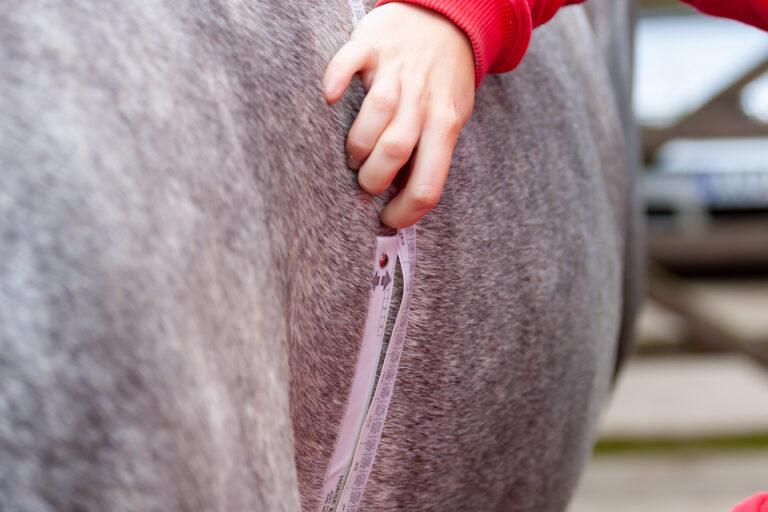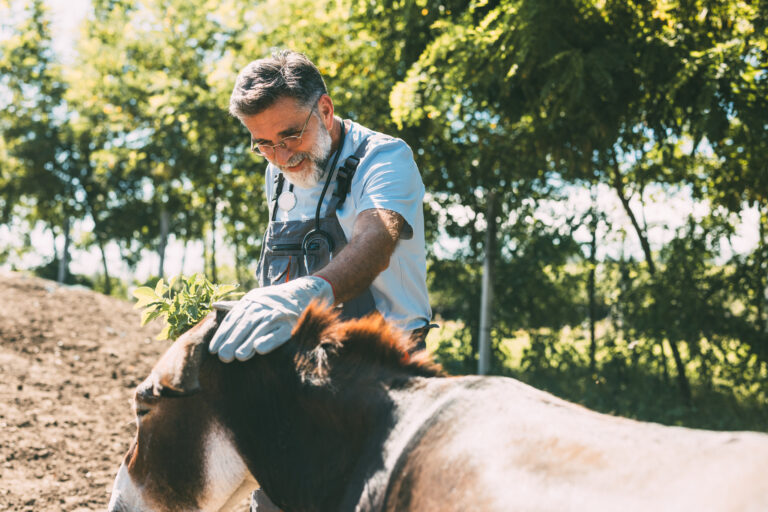
Colic surgery can be a life-saving procedure, but some horses struggle to return to their previous athletic careers post-surgery. Researchers in Italy evaluated the short- and long-term survival and return to performance of 96 show-jumping horses after colic surgery.
Study Population
The study included two groups. Group 1 consisted of show-jumping horses treated for acute colic at the University of Turin Veterinary Teaching Hospital between January 2017 and March 2021. The researchers conducted phone interviews with the owners in April 2023 to determine if the horse was still alive, in work, sold, or lost to follow-up. The researchers then divided these horses into two subgroups: Group 1H included horses performing at the same level or higher post-surgery, and Group 1L included those performing at a lower level than prior to surgery.
Group 2 included 92 untreated show-jumping horses of a similar age to each surgical candidate. The researchers analyzed data including the age at the horse’s last recorded competition and career length, using the surgery date of a comparably aged Group 1 horse as a starting point.
Study Findings
At the time of surgery for the 96 show-jumpers, the median age was 14 years, with 30 horses older than 16. Four were euthanized at surgery. Resection and anastomosis were performed in 25 horses; nine had anastomosis only. For these 34 horses with resection and/or anastomosis, 26 were discharged from the hospital. Five of these retired post-op, and median long-term survival was 2.73 years. The overall short-term survival rate for the entire group was 85.4%, with 82/96 horses discharged from the hospital.
Of the 21 fatalities, 10 died because of colic. Others died due to laminitis, PPID (one horse), and equine herpesvirus myeloencephalitis (one horse). Seven had postoperative colic after discharge, eight developed infection of the surgical site, and one developed an incisional hernia.
At the time of surgery, 59 of 82 post-op survivors were in active competition. Seventy-eight percent returned to competition within a median time of about nine months, five of them at a lower level. Follow-ups over two years found that almost 64% of horses that underwent colic surgery were still alive. The most notable finding is that “no significant differences were observed in the level of competition and career length between horses that underwent colic surgery and the randomly selected comparison group.” In summary, the authors stated that colic surgery, even complex cases, did not impact horses’ career progression. Retirement after surgery in most cases was related to orthopedic issues or other unrelated causes.
Reference
Giusto G, Gandini M. Return of showjumping horses to sporting activity after colic surgery. Equine Veterinary Journal Aug 2024; DOI: 10.1111/evj.14407
Related Reading
- Daily Vet Life: Show Jumper Undergoes Life-Saving Colic Surgery
- Researchers Describe Post-Anesthetic Rhabdomyolysis in Warmbloods
- Disease Du Jour: Improving Postoperative Outcomes for Colic Patients
Stay in the know! Sign up for EquiManagement’s FREE weekly newsletters to get the latest equine research, disease alerts, and vet practice updates delivered straight to your inbox.




